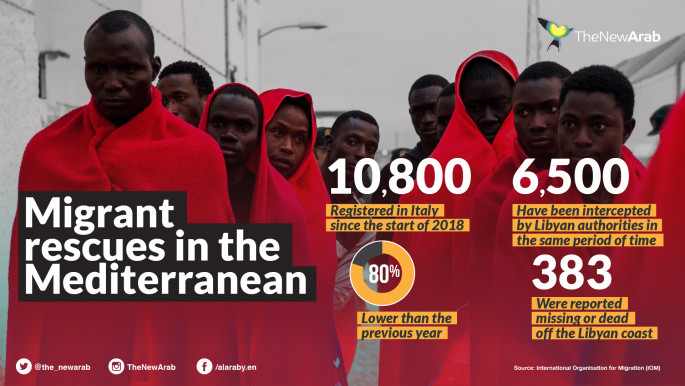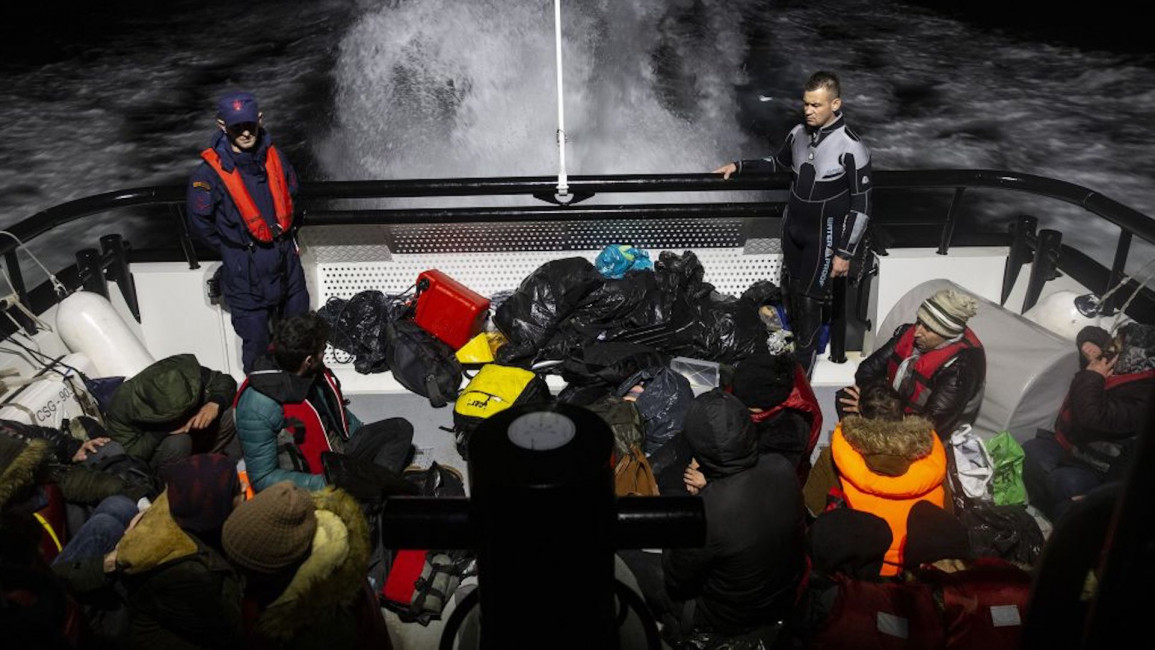Eight migrants drown near Turkey coast
The incident happened on Wednesday night in the Aegean Sea, around eight kilometres from the town of Fethiye in southwest Turkey, it said in a statement.
A ministry statement said a rubber boat with about 15 people on board went down late Thursday off the coast of Fethiye, in Turkey's southwest corner.
The bodies of five men and three women were found by coastguards. Their nationalities were not immediately known.
 |
|
Turkey hosts some four million refugees, mostly from Syria, and is an important transit point for migrants trying to reach Europe.
In 2019, Turkish coast guards prevented 60,802 migrants from embarking for Europe from the Turkish coastline, the Sabah newspaper reported.
The number of crossings has greatly diminished after Turkey vowed to stop unauthorised boats under a 2016 agreement with the European Union, but authorities in both Athens and Ankara have reported an increase in migrant arrivals since the summer.
This comes as Turkish President Recep Tayyip Erdogan warned Europe that the country is experiencing a refugee crisis and could not handle a new wave of Syrian refugees fleeing increased bombardment in the northwestern Idlib province.
According to Refugees International's Dr Hekmat, "when Syrian refugees arrived" help towards Afghan refugees was "cut".
"The Turkish government would say, 'Syrians need a lot of help, so we can only help Syrian refugees'. Afghans became distressed. There was no help for them".
Turkey hosts some 3.6 million Syrian refugees - more than any other country, with many of them Syrian refugees fleeing violence in Idlib and other war-torn areas.
Under the temporary protection system, they must remain in the province to which they were initially assigned, and can only visit other cities with short-term passes.
Read more: Why is once refugee-friendly Turkey now turning its back on Syrians?
The thousands of Syrians who arrived in recent years were unable to register under the system will be assigned to a province outside of Istanbul, the authorities have said.
Twitter Post
|
The Istanbul governor's office said on Friday that 42,888 refugees had been rounded up by police and sent back to their assigned provinces between July and October, without specifying their nationalities.
It said in July that 547,000 Syrians were officially registered in Istanbul, and that no new registrations were being accepted.
Seen initially as a temporary presence in Turkey, Syrians have suffered the consequences of a sharp economic downturn that has increased tensions between Turkish citizens and refugees.
Ankara was accused earlier this year of violating the principle of non-refoulement, a key tenet of international law, by allegedly deporting thousands of Syrians to war-torn Idlib province.
Turkey insists they returned voluntarily, but rights groups allege that refugees were forced to sign documents claiming their deportation was "voluntary".
The Turkish authorities claim more than 300,000 Syrians have voluntarily returned to the country in the past few years.
"Turkey's claim that refugees from Syria are choosing to walk straight back into the conflict is dangerous and dishonest. Rather, our research shows that people are being tricked or forced into returning," Anna Shea, Researcher on Refugee and Migrant Rights at Amnesty International, said in a statement last month.
"Turkey deserves recognition for hosting more than 3.6 million women, men and children from Syria for over eight years, but it cannot use this generosity as an excuse to flout international and domestic law by deporting people to an active conflict zone."
Follow us on Twitter and Instagram to stay connected



![Widespread famine is imminent in Gaza [Getty Images]](/sites/default/files/styles/image_330x185/public/2024-03/GettyImages-2015647000.jpg?h=199d8c1f&itok=mJWWP_Td)